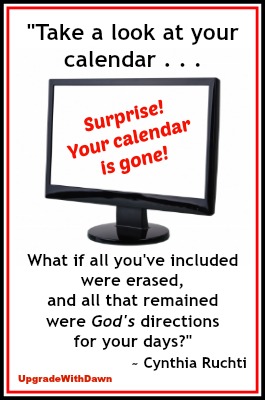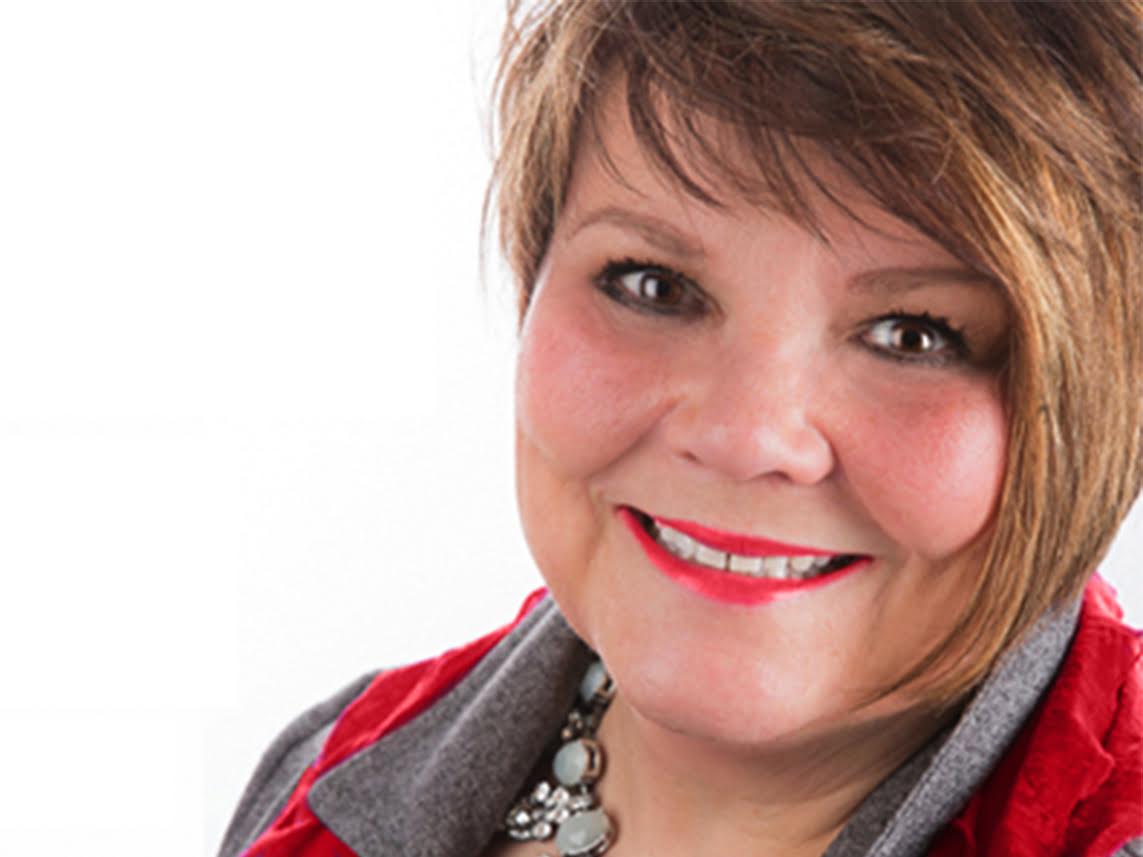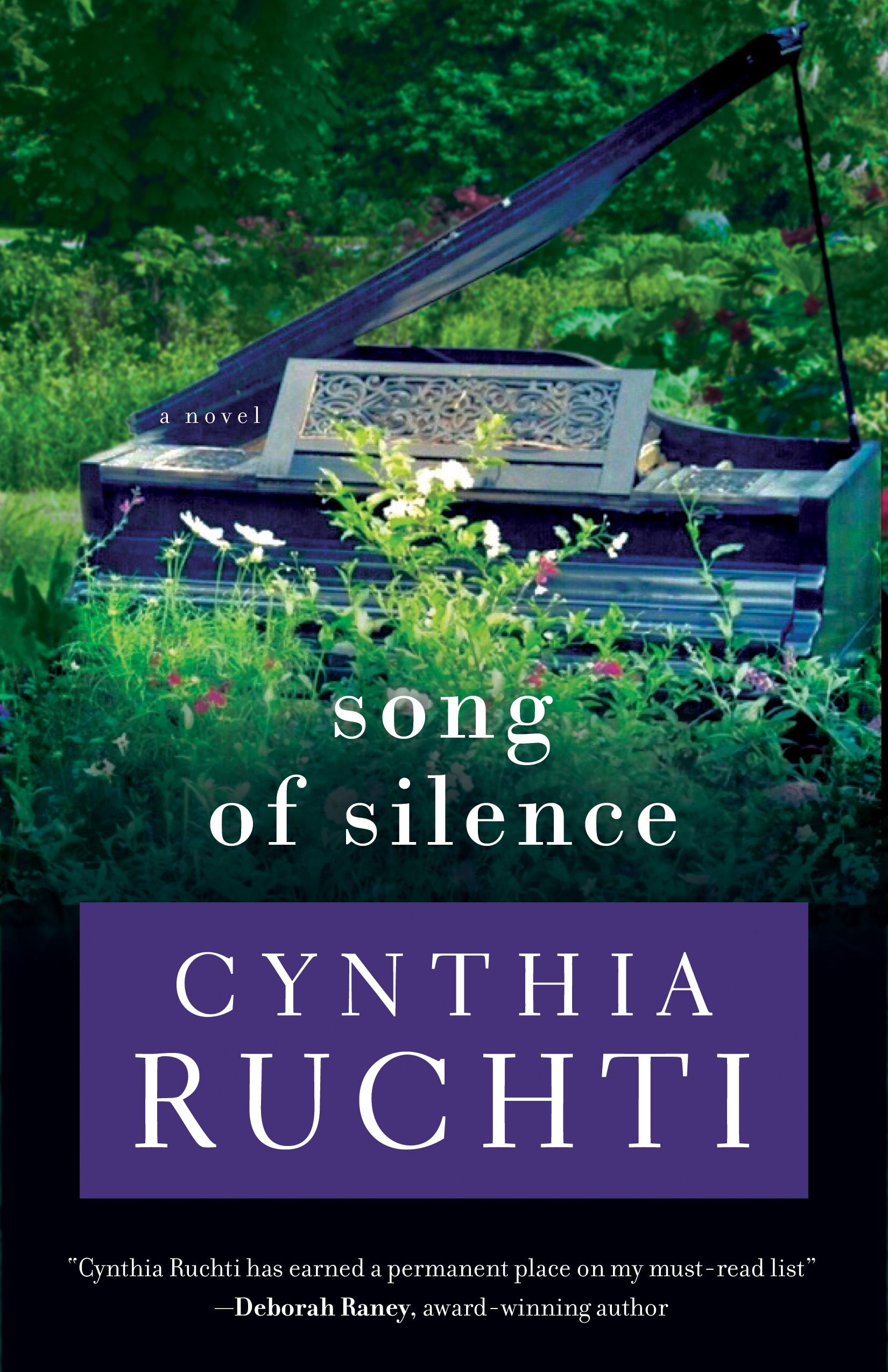Create More Opportunities for Margin - Part 1
More and more, people are talking about “margin.” Dawn Wilson tackles this topic in a Self-Care UPGRADE in a two-part post to encourage those who find themselves stressed and over-committed, exhausted and near burnout.

Marginless living is the story of millions of Americans today. That’s part of my story too. I desperately needed more margin.
In his book, Margin: Restoring Emotional, Physical, Financial, and Time Reserves to Overloaded Lives (NavPress, 2014), Richard A. Swenson, a medical doctor, points out the lack of margin in American society in spite of all the “progress” we have made.
“The disease of marginless living is insidious, widespread and virulent,” Dr. Swenson said. “We live with unprecedented wealth and all it brings. We have leisure, entertainment, convenience and comfort…. Yet stress, frustration and oftentimes even despair unexpectedly accompany our unrivaled prosperity.”
His book is an excellent study of the reasons for marginless living, and he offers wisdom for every area of life. (I recommend it to stretch your thinking.)
But even before I read his book, I was thinking about the reasons for my own stress. Here’s what I discovered.
When some people think about margin, they envision the word “boundaries”—the need to not let others overrun the priorities in their lives.
I totally understand that. It’s important to have biblical priorities and values for our lives and families. We have to learn to say no to others’ expectations when they don’t understand, or when they either intentionally or unintentionally try to push past our boundaries.
But I think that’s only one side of margin.
My version of margin includes freedom. It focuses on space and freed-up time.
I like to describe margin as “spacious opportunities.”
In other words, yes, we need to establish firm boundaries so people will not take advantage of our kindness and desire to serve. That’s a necessary part of healthy relationships.
We want to live in a sacrificial way, but the Lord still may direct us to say “no” to some intrusive or unnecessary things so we can say “yes” to other things that fit our calling and biblical priorities (Colossians 4:1-2).
But we have to be sure we’re creating space for those “yeses.”
If we don’t, we’ll simply be piling good things onto other good things and causing over-commitment and stress.
We all need positive space to think, create, and breathe. But our lives are so busy, we won’t have wonderful, spacious opportunities unless we're purposeful in making room for them.
There are some things we can’t (and shouldn’t change)—the priority of a relationship with God and the priority of our key relationships (Matthew 6:33; Mark 12:30-31).
But beyond that, we need to see and embrace opportunities for margin throughout our lives. It’s a wonderfully positive approach.
There are at least SEVEN WAYS to create more opportunities for margin—for what really matters.
1. Create more empty space in your HOME. We don’t have to stuff every closet and fill every shelf. It’s OK to leave some empty space. Even healthy and freeing.
Part of the Titus 2:4-5 mandate for women, even those who have careers, is to work at home—to manage the home well. It doesn’t have to be a duty or drudgery. Make it fun. Create a freeing space to minister to people in your family and neighborhood.
Join me in creating that freedom! Evaluate your “stuff.” Go through one room per week with a big box or bag. What can you find to give away? Ask yourself:
- “How many of these do I have?” (Why do you need 12 pair of scissors—and they aren’t even crafting scissors? Learn to practice contentment: Hebrews 13:5a)
- “Why am I keeping this?” (An out-of-date college textbook. A 10-year-old jar of face cream, probably rancid.)
- “Do I really need to have this object to keep a memory alive?” (A photo might suffice.)
- “Is this a legacy item—and does my family want it?” (And usually, our millennial kids don’t.)
- “Do I really need this?” or “Might someone else need this more than me? (Consider a homeless person, a struggling single mom, a low-paid teacher, etc.)
I have often used some of the home and office organizing techniques I've learned from "Organizing Pro" Marcia Ramsland in her book Simplify Your Life.
2. Create more space in your CALENDAR. Just as our homes can be cluttered with stuff we don’t need, sometimes our lives are cluttered with activity and our schedules need some paring down.
We need to plan “down time” as carefully—and with as much joyful anticipation and dedication—as work, event and activity times. Part of making “the best use of your time” (Ephesians 5:15-17) is understanding the Lord wants us to know when to stop working, to stop pushing… to just stop!
Plan breaks and times of refreshing on a regular basis: daily, weekly, monthly, yearly. God wants His loved ones to get “proper rest” (Psalm 127:2).
Again, Marcia Ramsland can help with her book, Simplify Your Time.
3. Create more space in your BUDGET. Rather than thinking, “How much do I have left to spend?” think, “How much can I save?” or “How much can I invest?” Thinking we have money to indulge our every whim is seldom wise.
Rather than letting covetousness rule, give money its proper place and think in terms of faithful and wise stewardship.
- Grow your finances strategically (Proverbs 13:11) with forethought (Luke 14:28-30) and honestly (Deuteronomy 25:13-15).
- Be vigilant (Proverbs 27:23), and know where and how to invest (Matthew 13:44-46; 25:14-30).
- Provide for your family, and don’t forget to develop a generous giving heart (1 Timothy 5:8; Luke 12:15).
- Create a legacy for your children and grandchildren (Proverbs 13:22).
When we plan wisely, we will feel more secure (Ecclesiastes 7:12); but remember the true Source of your security. Even so, it’s still smart to create sufficient financial margin—sometimes called a “cushion of funds”—to carry you over in times of stress or crisis. Financial experts may not agree on the exact amount, but they all agree on the necessity!
For financial wisdom beyond the scriptures, I seek out people like "America's Family Financial Expert," Ellie Kay and The 60-Minute Money Workout. I also learned so much from Ron Blue and Jeremy White's Faith-based Family Finances, Dave Ramsey's The Total Money Makeover and Randy Alcorn's Managing God's Money.
How can you create more spacious opportunities in these three areas: Home, Calendar and Budget?
Part 2 of this post will appear on January 31st, with four more areas needing margin.
Dawn Wilson, founder and President of Heart Choices Today, is a speaker and author, and the creator of three blogs: Heart Choices Today, LOL with God (with Pam Farrel), and Upgrade with Dawn. She is a contracted researcher/reviewer for Revive Our Hearts and a writer at Crosswalk.com. She and her husband Bob live in Southern California and have two grown, married sons, three granddaughters and a rascally maltipoo, Roscoe.
the creator of three blogs: Heart Choices Today, LOL with God (with Pam Farrel), and Upgrade with Dawn. She is a contracted researcher/reviewer for Revive Our Hearts and a writer at Crosswalk.com. She and her husband Bob live in Southern California and have two grown, married sons, three granddaughters and a rascally maltipoo, Roscoe.
 Post a Comment → Posted on
Post a Comment → Posted on  Tuesday, January 30, 2018 at 9:00AM
Tuesday, January 30, 2018 at 9:00AM  Burn-out,
Burn-out,  Calendar,
Calendar,  Clutter,
Clutter,  Create Margin,
Create Margin,  Ellie Kay,
Ellie Kay,  Exhaustion,
Exhaustion,  Hoarding,
Hoarding,  Marcia Ramsland,
Marcia Ramsland,  Margin,
Margin,  Marginless living,
Marginless living,  Schedule,
Schedule,  Space in your home Upgrade Your Life
Space in your home Upgrade Your Life  Finances,
Finances,  Homemaking,
Homemaking,  Self-Care,
Self-Care,  Time Management
Time Management 






